Top Halal Certification Issuer
Canada’s halal food market is projected to exceed $4.3 billion by 2029. Driven by a growing Muslim…
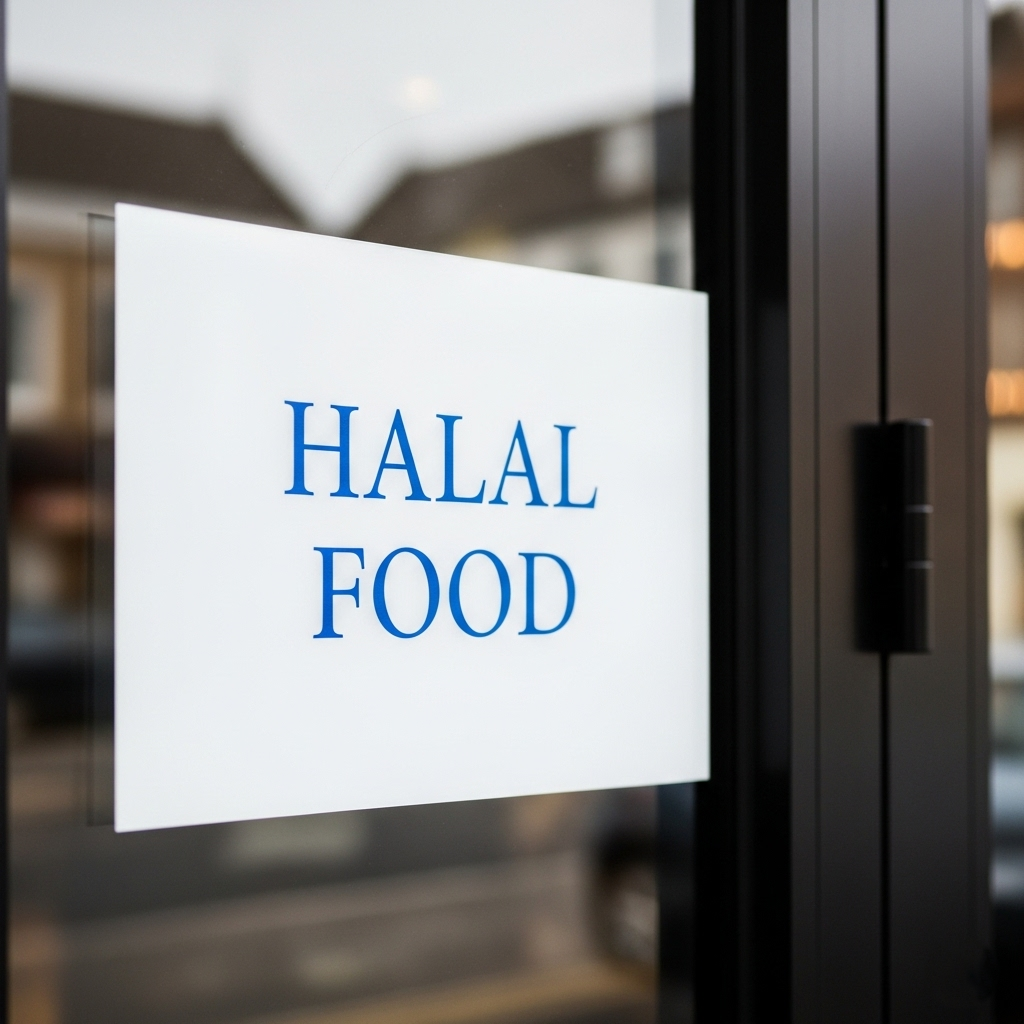
Canada’s halal food market is projected to exceed $4.3 billion by 2029.
Driven by a growing Muslim population and a rising interest from health-conscious consumers. As this demand continues to surge, the role of trusted halal certification agencies has never been more critical. For food manufacturers, meat suppliers, and exporters, choosing the right halal certification company is essential not only for meeting religious standards but also for unlocking this rapidly expanding market. However, in a country where no federal body regulates or accredits certifiers, businesses and consumers alike must navigate a competitive and often fragmented landscape. This guide explores the top halal certification issuers in Canada, comparing each agency based on their slaughter standards, audit process, export eligibility, and market reputation—giving you a clear path to certification, compliance, and ultimately, consumer trust.
Strict, community-trusted halal certification for meat products in Canada.
The Halal Monitoring Authority (HMA) stands out as one of the most respected halal certification agencies in Canada, especially among Muslims who prioritize traditional standards. Founded in 2004, HMA was born out of concerns over fraudulent halal labeling and the lack of consistent oversight. Since its inception, it has positioned itself not just as a halal certification agency, but as a watchdog for the Muslim community, aiming to ensure religious integrity across the entire supply chain.

HMA is known for its strict interpretation of Islamic slaughter rules. Unlike other halal certification companies, HMA enforces a conservative stance through a clear set of non-negotiable standards:
Strict Stunning Rules:
This level of detail gives certified businesses a distinct level of credibility. Many consumers actively seek out the HMA logo, viewing it as a guarantee that the meat meets the highest Islamic standards.
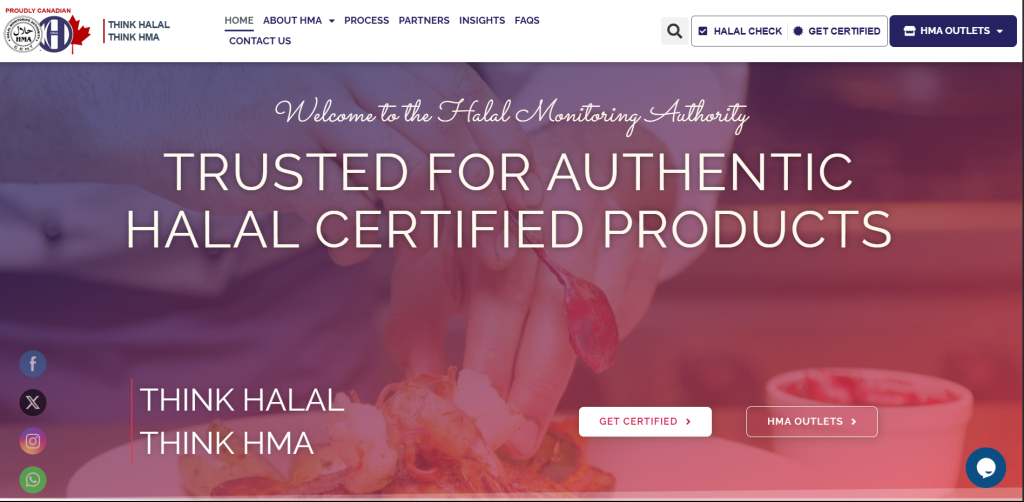
The halal certification services offered by HMA don’t end at the slaughterhouse. The organization implements a full-chain audit system that includes slaughterhouses, processors, distributors, and retail outlets. Businesses are subject to both scheduled and surprise inspections to ensure full compliance.
All certified businesses are listed in a public online directory, giving consumers full access to where they can purchase verified halal meat. This transparency helps reinforce its reputation as a guardian of halal integrity and a top halal certification issuer in Canada.All certified businesses are listed in a public online directory, giving consumers full access to where they can purchase verified halal meat. This transparency helps reinforce its reputation as a guardian of halal integrity and a top halal certification issuer in Canada.
While HMA primarily focuses on the Canadian market, it is recognized by key international bodies like the World Halal Food Council (WHFC) and JAKIM in Malaysia. These affiliations make HMA a viable choice for businesses seeking halal export opportunities.
HMA’s certification process is also relatively accessible.
The cost structure is transparent and accessible for many businesses, typically including:
Canada’s Premier Halal Certification Body for Large-Scale Operations and Export
The Islamic Society of North America (ISNA) Canada stands as one of the country’s oldest and most widely recognized halal certification companies. Established in the early 1990s, ISNA was among the pioneering organizations to formalize halal standards for Canada’s growing Muslim population. Over the decades, it has evolved into a leading halal certification provider and issuer, sought after by food manufacturers, meat exporters, and large-scale producers who require robust documentation and global acceptance.

ISNA Canada employs a pragmatic and flexible approach, especially when compared to traditionalist agencies like HMA. Its standards permit stunning prior to slaughter for both red meat and poultry, provided the method is reversible and the animal is confirmed alive at the time of slaughter. Mechanical slaughter is also permitted for poultry, making ISNA a viable partner for large processing plants and mass-production environments. Critically, the organization mandates that the tasmiyah (recitation of “Bismillah”) is performed, whether on each animal or through a validated continuous recording, depending on the operational setup.
This adaptability allows ISNA to service a broad spectrum of the industry. While some consumers advocate for stricter interpretations, ISNA’s framework is widely accepted by Muslims in Canada and internationally, positioning its halal certification services as among the most accessible and scalable in the country.
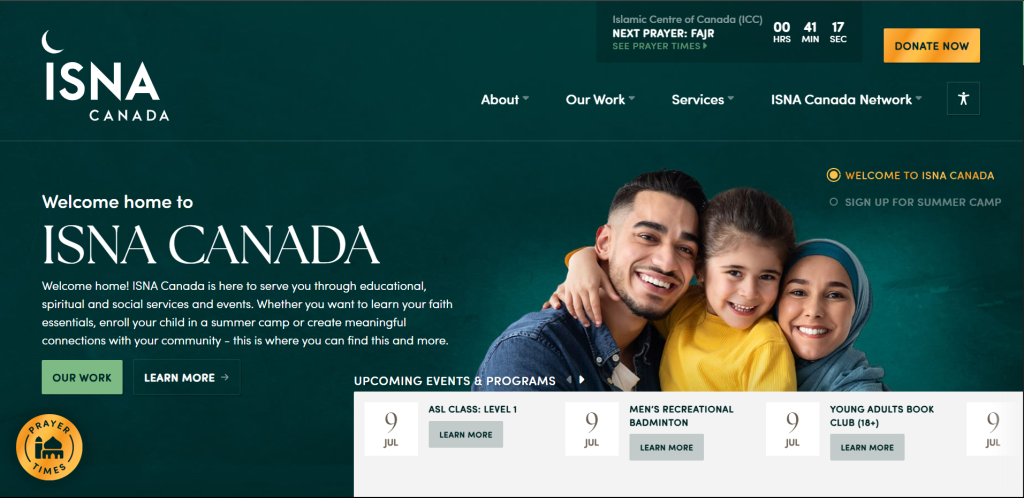
ISNA’s audit system is structured to support both domestic and export-focused businesses. Facilities undergo scheduled inspections covering cleanliness, halal segregation, slaughter techniques, and full traceability. The organization provides comprehensive documentation, including batch control systems and halal certificates designed for international trade. Unlike HMA’s model of surprise audits, ISNA emphasizes continuous compliance through meticulous record-keeping and planned inspections.
The ISNA logo on food labels and restaurant menus communicates a reliable standard of halal oversight, trusted by a vast number of consumers and businesses alike.
ISNA Canada’s primary strength lies in its global reach. It holds accreditations from the world’s most influential halal authorities, including:
These affiliations establish ISNA as a top-tier choice for businesses aiming to export halal products to Southeast Asia, the Middle East, and beyond. Its partnerships with US-based authorities also streamline certification for North American manufacturers operating across borders.
There is no single price that fits everyone. Each company will receive a custom quote based on the following factors:
Technical, globally-recognized halal certification for food, pharma, and cosmetics.
The Islamic Food & Nutrition Council of Canada (IFANCC) is the Canadian affiliate of the globally respected IFANCA (est. 1982). It operates as a highly technical halal certification agency, bringing scientific precision and rigorous international standards to the Canadian market. Its philosophy is that a truly reliable halal certificate must be backed by deep technical expertise, ensuring products are compliant from a religious, scientific, and regulatory perspective.
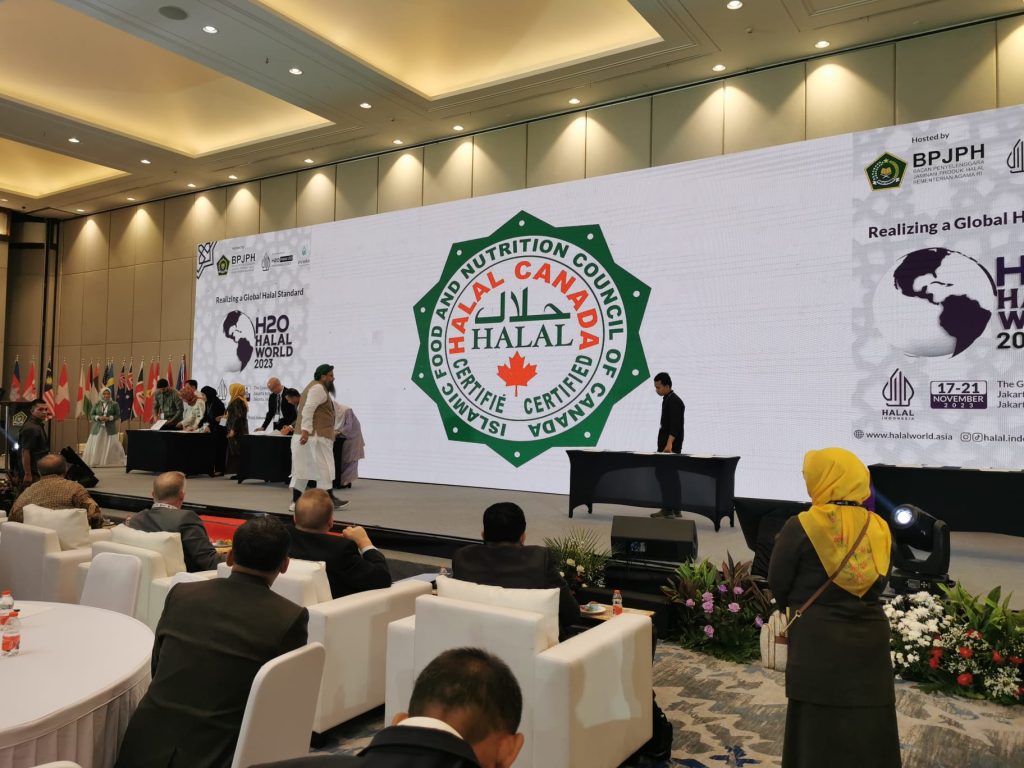
IFANCC’s approach is rooted in technical verification and adherence to global standards. It serves a broad range of industries beyond meat, including pharmaceuticals, cosmetics, and nutritional supplements.
Its publicly stated standards include:
IFANCC’s halal certification services are built on a meticulous, multi-step process designed for accuracy:
Trust in IFANCC comes from its technical reputation and its role as a gateway for major brands seeking to enter global halal markets.
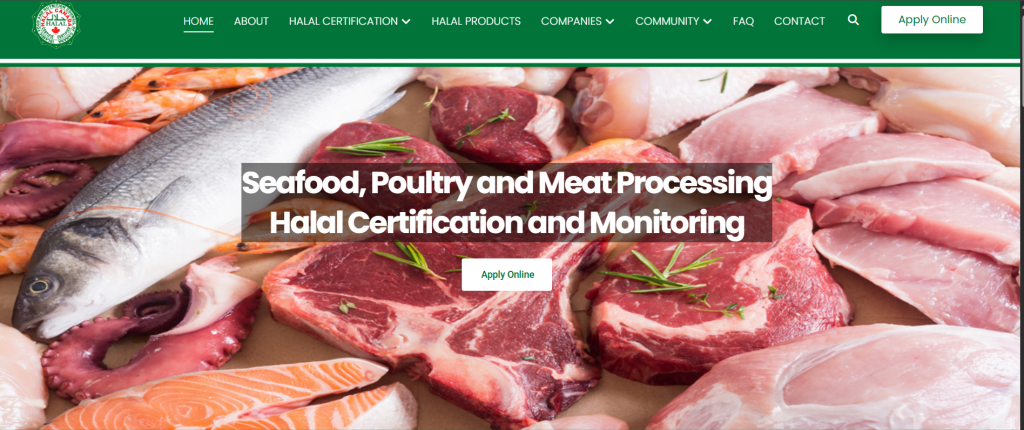
This is IFANCC’s defining strength. It is one of the most widely recognized Canadian halal certification companies on the world stage, with official accreditation from key bodies:
These affiliations make it a top-tier choice for businesses whose primary goal is exporting to Asia and the Middle East.
IFANCC does not publish a fixed fee schedule, as costs are customized for each client. The pricing depends on factors such as:
Businesses must contact IFANCC directly to request a confidential quote based on their specific needs.
Fast, flexible, and export-focused halal certification.
The Canadian Halal Bureau (CHB) presents itself as a cornerstone of the industry, with a history dating back to conducting one of the earliest halal audits in the 1980s. It is the official Canadian arm of the American Halal Foundation (AHF) and leverages over 60 years of combined audit expertise to instill confidence and set global benchmarks. CHB’s philosophy is centered on empowering Canadian manufacturers to tap into the $1.5 trillion global halal market through trusted, efficient certification.
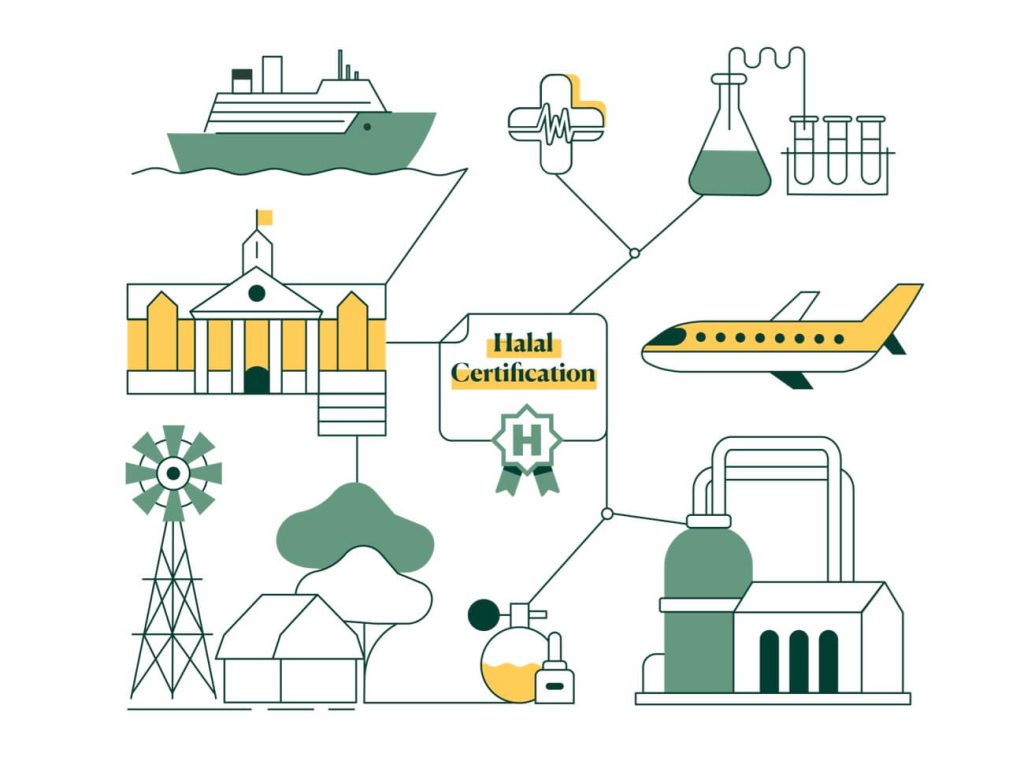
CHB is known for its flexible yet credible interpretation of halal rules, designed to accommodate modern, large-scale production without compromising core principles.
This flexibility makes it one of the most practical halal certification agencies for industrial producers.
CHB promotes a straightforward “3-Step Halal Certification Process” designed for speed and clarity:
Market trust is built on the international reputation of its parent organization, AHF, and its transparent, business-friendly approach.
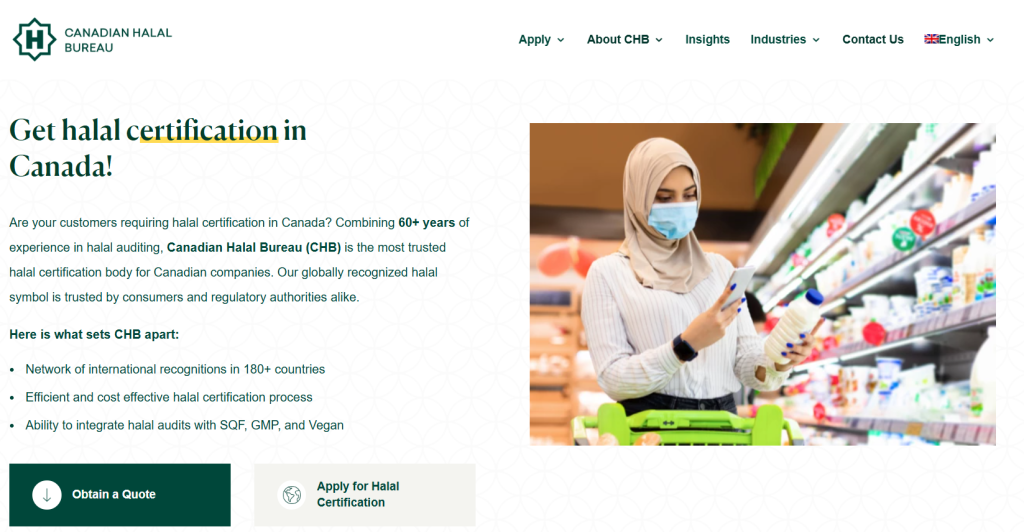
Through its affiliation with AHF, CHB offers Canadian businesses a passport to the world. AHF is officially recognized by:
Accessibility is a key part of CHB’s model. It stands out by offering:
Integrated halal certification for large-scale industrial food producers.
The Canadian Halal Food Certifying Agency (CHFCA) has carved a unique niche as a halal certification provider that specializes in integrating halal compliance with mainstream, government-regulated food safety programs. Its founding philosophy is to act as a bridge, ensuring that halal certification fits seamlessly into the complex quality assurance systems of major industrial corporations.

CHFCA’s approach is defined by its synergy with industrial protocols. It focuses on ensuring its halal certification services align with standards that its large-scale clients already adhere to, such as:
A key characteristic of CHFCA is its policy regarding its standards: CHFCA does not publicly detail its specific slaughter or stunning standards on its website. Its value proposition is not based on a specific interpretation of slaughter, but on its ability to manage halal compliance within a large, regulated industrial environment.
The audit process at CHFCA is designed to be compatible with existing corporate quality control workflows. This creates an efficient, streamlined experience for large companies.
Market trust in CHFCA is primarily institutional, demonstrated by its long-standing relationships with some of Canada’s largest food producers, including Maple Leaf Foods. Its presence in major retail supply chains further solidifies its position as a trusted partner for enterprise-level businesses focused on the Canadian market.
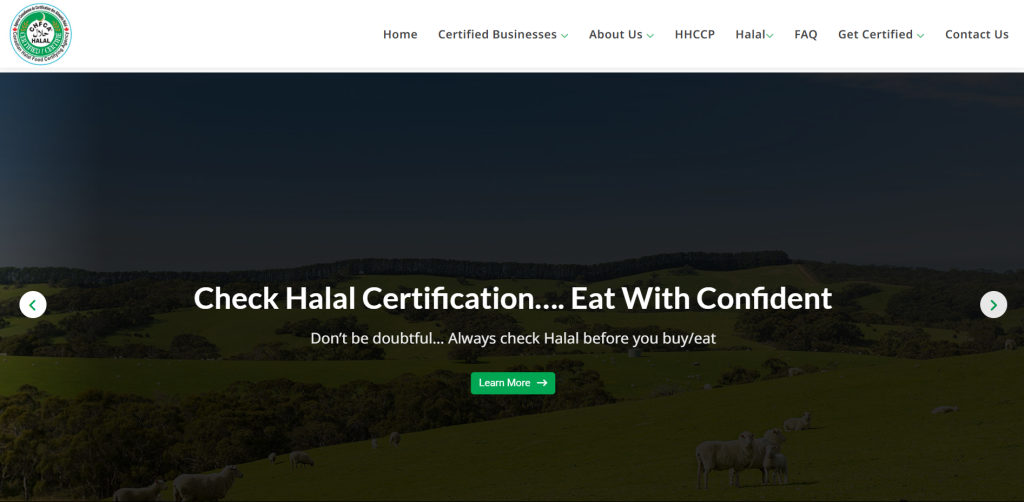
CHFCA does not publicly list any affiliations with international halal bodies like JAKIM or MUIS. Its focus is centered on the Canadian domestic market and ensuring compliance within North American regulatory frameworks. Therefore, it is best suited for businesses whose primary market is Canada.
Similar to other industrial certifiers, CHFCA does not provide a public price list. Certification costs are customized and typically structured for enterprise-level clients. Businesses must engage with CHFCA directly to develop a quote based on the scale and complexity of their operations.
In a country as diverse and export-oriented as Canada, choosing the right halal certification agency isn’t just a matter of religious compliance—it’s a strategic business decision. Whether you’re a small local producer or a large-scale exporter, working with a credible halal certification issuer ensures your products meet Islamic dietary requirements, build consumer trust, and gain access to lucrative international markets.
With no unified federal regulation, it’s essential to carefully evaluate halal certification providers based on their slaughter standards, audit protocols, international recognitions, and alignment with your company’s goals. From industry giants like ISNA and IFANCC to export-focused services like CHB and integration-driven agencies like CHFCA, Canada offers a wide range of halal certification companies—each with strengths tailored to specific needs.
By selecting a trusted and transparent halal certification service, you’re not just complying with standards—you’re building long-term confidence with your Muslim consumers in Canada and around the world.